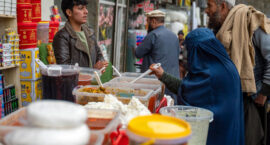Regressive ideas about manhood underlie the anti-democracy movement plaguing the U.S. Men whose politics are to the left of center can do their part to counteract the right’s success in playing identity politics with white male voters.
Here’s where we start.
(This article originally appears in the Spring 2024 issue of Ms. Join the Ms. community today and you’ll get issues delivered straight to your mailbox!)












